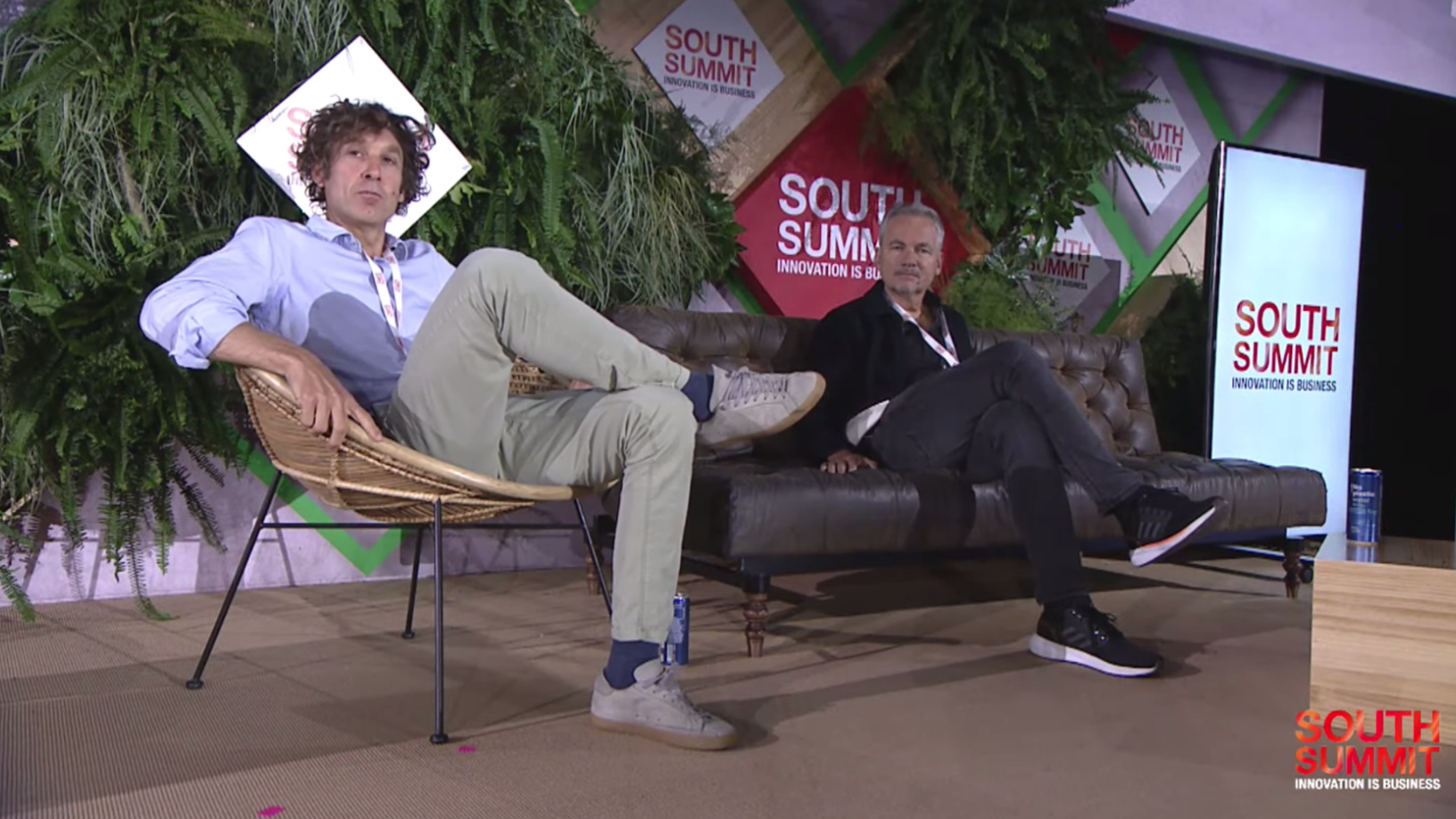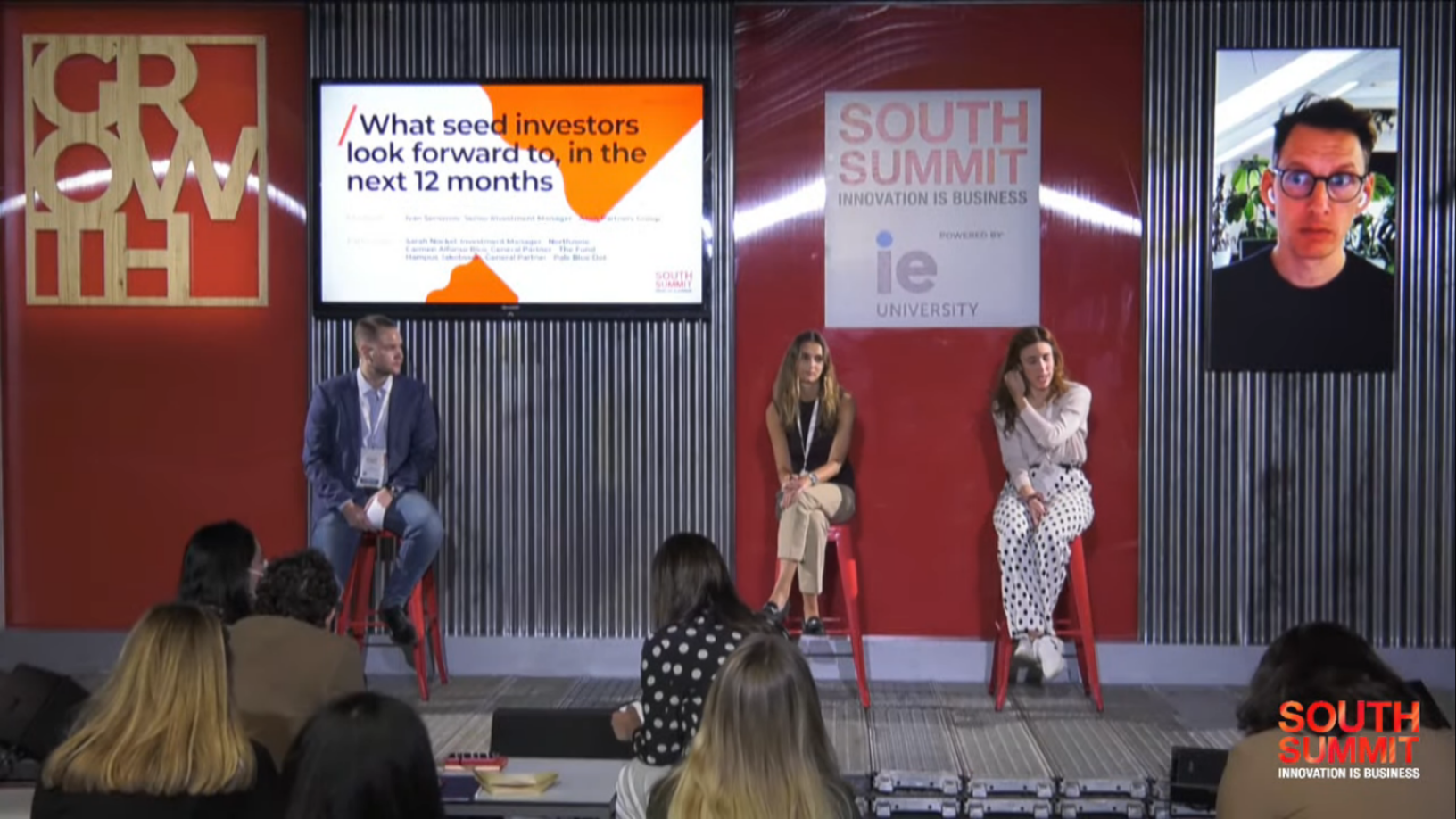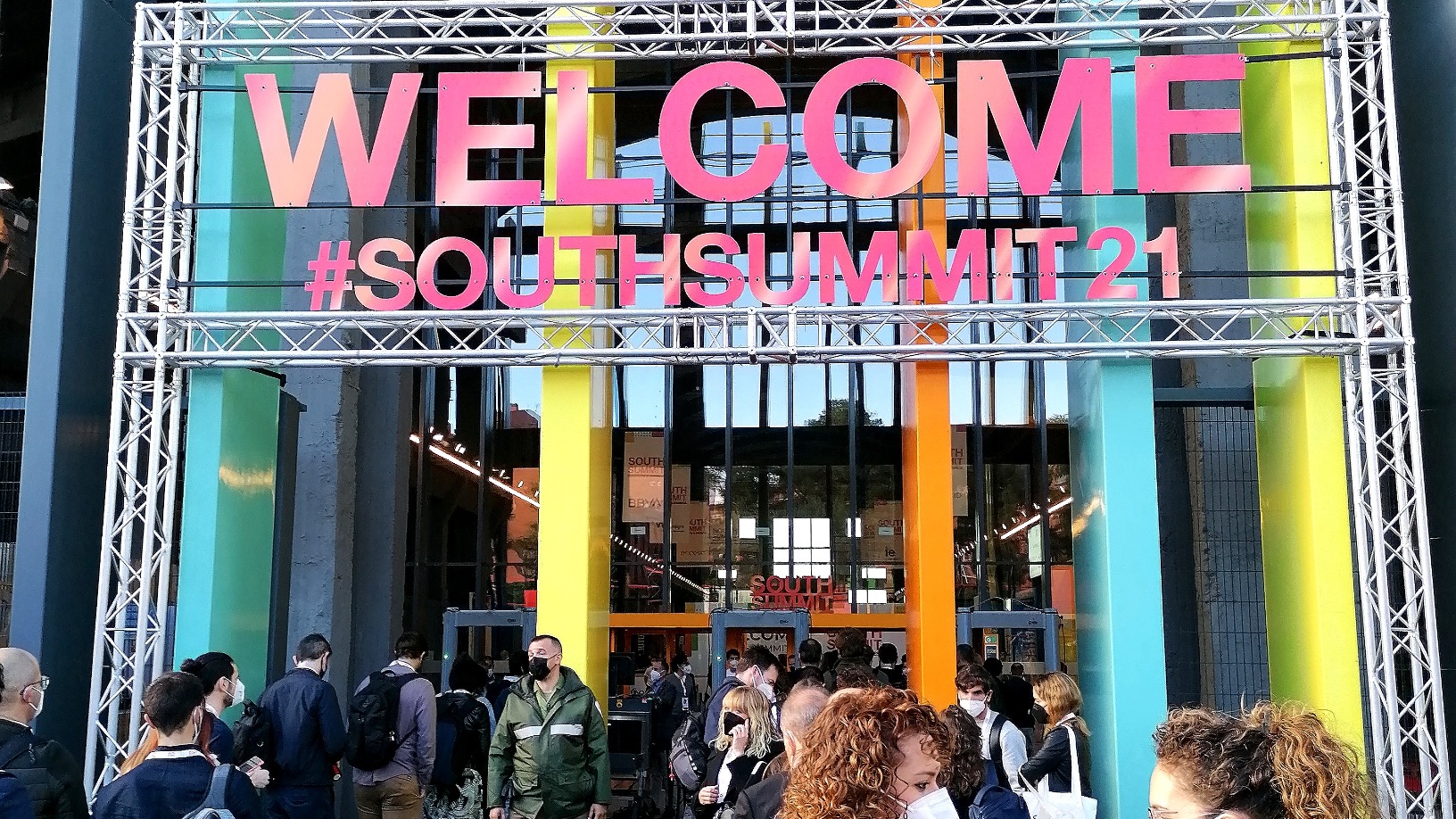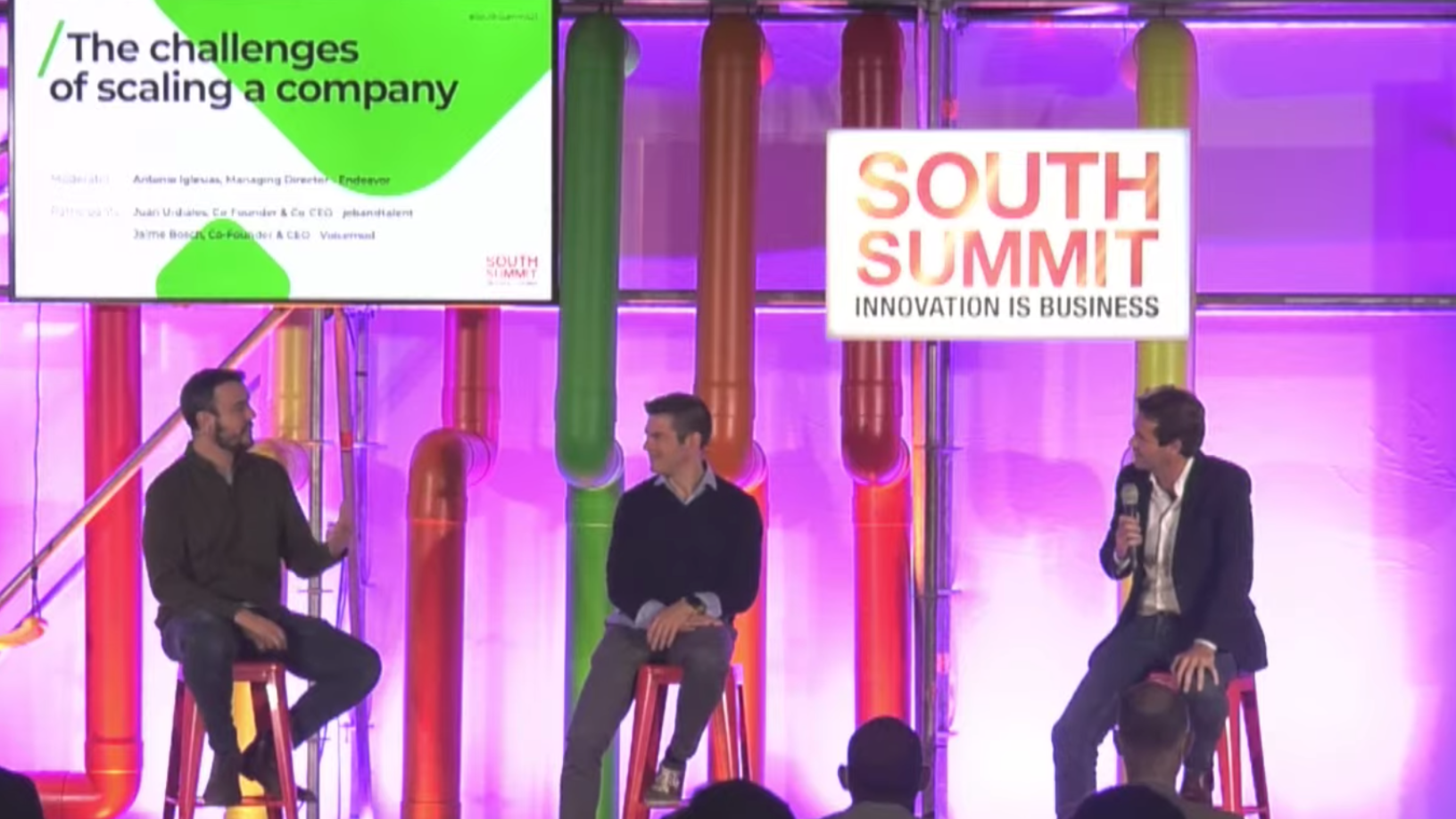At this year’s South Summit in Madrid, Leandro Sigman, Chairman of Insud Pharma, one of the companies currently manufacturing the AstraZeneca vaccine, spoke with fellow panelist Martin Varsavsky, the serial entrepreneur and investor who has founded more than eight companies across the US and Europe in the last 30 years.
Among the topics discussed were how Covid has disrupted and continues to transform healthcare, and the breakthroughs that have occurred along the way. They also asked: Are we truly experiencing a healthcare tech boom? To what extent will telemedicine optimize the way patients are treated? What might the mRNA technology mean for future pharmaceutical discoveries, and will Covid vaccines push and accelerate their commercialization?
The following discussion has been edited for length and clarity.
Martin Varavsky: What developments has Covid provoked?
Leandro Sigman: I think one of Covid’s breakthroughs was that new pharma technologies such as the messenger RNA (mRNA) came to market. This is an amazing development because the technology had been around for a while. Covid has really sped up access to these products.
It’s like when penicillin came to the market back in the 1920s. It opened up a new era in the treatment of diseases. The capacity of these vaccines to train the immune system allows for the development of a huge battery of new treatments. There are currently 2,000 global clinical studies with mRNA products alone, and those products are for oncology therapies – another great arena. This, for me, is one of the most important things that's happening today in science.
LS: Martin, how did you develop your algorithm to predict the amount of Covid cases and how do you see current vaccination programs in different territories?
MV: When the pandemic started, the president of the Madrid community asked a group of us, including Miguel Arias [Partner of K Fund and Spanish tech veteran] and I, to lead the digital fight against the pandemic. We were a group of 70 working online, building apps such as Corona Madrid. We were trying to understand how many people had Covid, and so we started diagnosing Covid-19 through the app. The surprising thing – though less surprising now – was that we were getting many more people diagnosed with Covid per the app than the official numbers.
We had algorithms that, for example, deducted points if people were sneezing and added points if people were coughing. These algorithms were designed to distinguish Covid from regular colds and other similar but less dangerous illnesses. They were also designed to understand how serious a case was, and to decide whether people needed an ambulance to pick them up. That’s how I became obsessed with Covid. I started studying it, as it was something completely new to me. I'm still somewhat obsessed, to the point that I can quote vaccination rates in every country.
Spain is doing incredibly well and so is Portugal. Both countries are the most vaccinated countries in the Western world. It is phenomenal that the people in Spain have not fallen victim to all the lies disseminated about vaccines across social media. The population has realized that the long-term effects of the Covid vaccine are just a myth. There’s no single vaccine that ever has had long-term effects. Spain has a vaccination rate to the tune of 80%, whereas the UK’s is about 65%. That gap makes a big difference with a Delta variant.
So the question now is: are we out of the Covid woods? To me, it depends on people like Leandro and the efforts that are being made around the world to inoculate people. If we get to 75% on the whole planet, I think it will be over. In Spain, Covid has gone from 30,000 cases a day to 2,000, and from 150 deaths per day to 7–10. Covid is disappearing now in Spain and in Portugal, and hopefully the whole world will go that way too.
MV: Leandro, you work with a company with thousands of employees that need to be in factories to produce the vaccine. How did you deal with remote work?
LS: In our case, it was difficult to produce vaccines from home so we didn't stop one single day – not for the vaccines or for other medicines. It was extremely challenging to make sure that our factories were kept running. We were challenged in particular in two areas: the first was to make sure people wouldn't get infected. Secondly, it was very difficult simply to challenge our people to go to work.
Nevertheless, our people did great and we didn't have one single employee infected at work. There are, therefore, measures that can be implemented to prevent the disease spreading.
MV: How do you think has Covid affected medical treatment?
LS: One other Covid breakthrough has been the change in relationship between patients and doctors. It has been completely rephrased. There's a new way to treat medicine, a new era where a large number of diseases can be treated remotely. But we are also starting to see clinics highly specialized in certain diseases.
We're very specialized in women's health and we're seeing projects all around the world for menopause, plus clinics for contraception. Also, product supply is being done completely virtually. It's not a “pharmacy online” concept – which is also developing – but it's more a subscription model. Today, there are subscription models for contraception or menopause where you pay a monthly fee and you get your monthly treatment. This is a dramatic change that will reshape not only the ratio between patients and doctors but the role of the pharma industry.
LS: Martin, could you talk about your fertility clinics?
MV: We have the largest chain of fertility clinics in the US. Covid was initially disastrous for us because women could not go for fertility treatments. Then the situation turned around as Covid caused us to work from home. This was amazing for women because previously they were not doing egg freezing, IVF or fertility treatments since they didn't want to take time off work. But when you work from home, nobody knows you're doing fertility treatment. So 2020 was disastrous for us at the beginning and it was great at the end of the year.
What the pandemic accelerated was that anything that could be digital became digital; anything that could be done from home was done from home. And so a lot of medical consultations, the ones that don’t require an actual physical examination, started being done from home. A lot of work has been done on devices that can be taken home, for example: ultrasound that can be connected to smartphones and read by doctors remotely.
Women’s health is a very interesting field because women have issues that men don't have. Ovarian aging, for example, makes women infertile very early in life. We have the first generation of women who will spend more time in menopause than being fertile, whereas the male infertility rate is around 5%. Nearly 100% of women in their 40s are becoming infertile. There is, therefore, an injustice. If we're aiming for some kind of gender equality, dealing with infertility and menopause is something that will surely help in this direction.
During the pandemic, investors became very interested in backing health-tech companies. Ten years ago, Andreessen Horowitz said, “Software is eating the world,” meaning that everything was going the way of software.
Today, we’ve started hearing that biotech is going to eat the world and this is thanks to some of the developments in the field. One is mRNA, for sure. However, the real breakthrough is not the mRNA itself but its encapsulation in nano-lipid particles. This allows mRNA’s delivery, as it is a very elusive molecule that tends to break up. That's what BioNTech and Moderna managed to put together.











